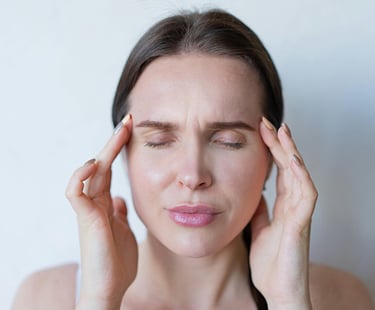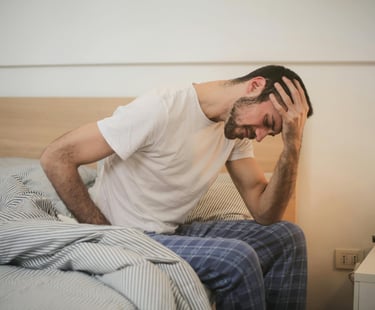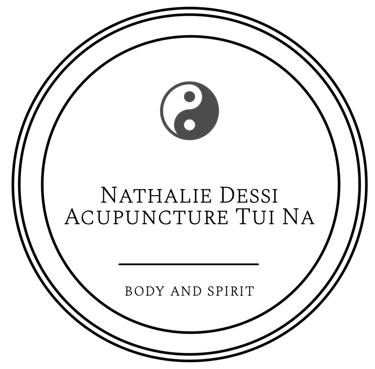Migraine - headaches - Dizziness
Headache sits right where you live


Acupuncture is often used to relieve migraines either with known causes (e.g. stress, cycle, certain foods) or which have not been identified or relieved by allopathic medicine.
In 2016, an independent study of nearly 5,000 migraine sufferers concluded that more than half the participants had experienced a 50% reduction in migraine episodes, and that acupuncture was more effective than prescribed medication.
As always, treatment will depend on the underlying cause and will differ according to the symptoms experienced.
Is your pain like a violent stabbing or dull ? Do you experience photosensitivity, noise intolerance, tinnitus or a feeling of heaviness in the head, difficulty concentrating, tiredness or, on the contrary, irritability? Is the pain bilateral or does it affect only one side? Is it located in the temples, the forehead, the back of the head or the vertex? Do you feel like vomiting?
Acupuncture has proved its worth in the event of an acute attack, but it is also effective as a background treatment.
Headache prevention: A growing body of research suggests that acupuncture may help prevent migraine headaches or decrease occurrences.
Cost savings: Some migraine therapies are expensive, and insurance coverage may not fully cover the costs. Acupuncture may help reduce the cost of managing chronic migraine, and some insurance plans may cover it.
Fewer side effects: People may experience unpleasant side effects with migraine medication or have medical conditions that make standard medicines unsafe. Acupuncture may be a viable alternative.
As far as classic headaches are concerned, whether they are temporary (after meals, in the morning, when exercising, etc.) or chronic, the same principle applies. You can live with them, but you're certainly better off without them.
I have personally successfully helped many people suffering from migraines for years. Acupuncture is definitely worth a try.
Dizziness/Vertigo
Dizziness is one of the most challenging symptoms in medicine. No medication for dizziness in current use has well-established curative or prophylactic value or is suitable for long-term palliative use.
Vertigo may be accompanied by tinnitus, tremors, fatigue, nausea, a feeling of heat or tightness in the chest.
Once certain serious causes have been ruled out, acupuncture can provide real relief and help restore normal functioning.
· A systematic review showed that acupuncture can improve the symptoms of cervical vertigo to a greater extent than medication (Hou 2017)
· Acupuncture has also been shown to be beneficial for Ménière’s disease(Long 2011)
· Acupuncture reduced acute dizziness and vertigo following 30 minutes of treatment in a hospital emergency department (Chiu 2015)


